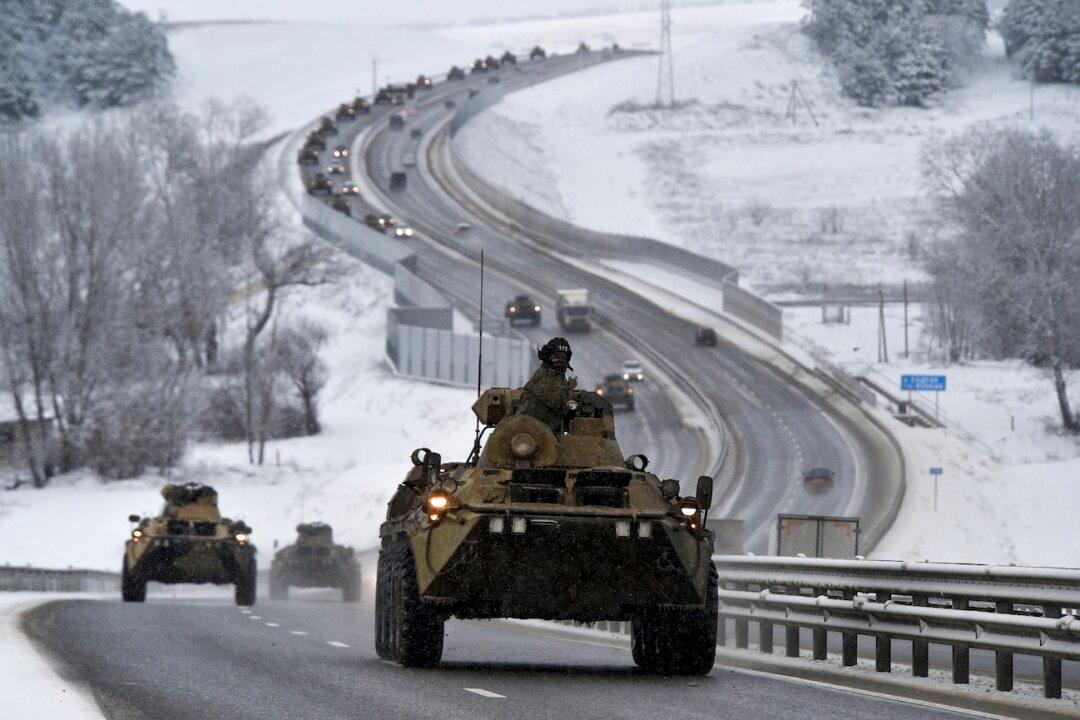A top International Monetary Fund (IMF) official has said that escalation of a conflict between Russia and Ukraine could fuel higher energy and commodity prices and make the current inflationary bout last even longer.
IMF First Deputy Managing Director Gita Gopinath made the remarks to reporters at a Jan. 25 press briefing on the occasion of the release of the agency’s most recent World Economic Outlook. The report projects that inflation will last longer than the IMF previously expected, even without any additional impact from the simmering Russia–Ukraine conflict.





